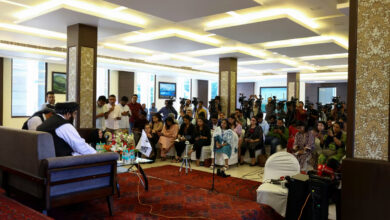On Sunday, President Hosni Mubarak appointed ten MPs to parliament, a right the Egyptian constitution grants to any president. The constitution does not oblige the president to do so, nor does it specify the the number of seats to be filled by appointments. It only stipulates a maximum number of ten while granting the president full discretion over whether or not to exercise this right.
For the ten seats, Mubarak appointed one woman and nine men, seven of whom are Copts. What lies behind this decision?
Reserving such a large number of appointments for members of Egypt’s Christian minority is probably a result of the ruling National Democratic Party’s (NDP) failure to secure fair representation for Copts in the elections.
The Egyptian political system, by nature, does not allow fair representation for Copts and women in parliament. Thus, both groups are always underrepresented. The 15 percent of total seats that women candidates managed to win this year is unlikely to ameliorate the status of Egyptian women. Nor will the appointment of seven Copts enable parliament to solve any of the country’s mounting sectarian conflicts. After all, the farmers and workers' parliamentary quotas–in place from the days of former President Gamal Abdel Nasser–have not prevented business tycoons from controlling Egypt’s legislature. Why would it be any different for women and Copts?.
The Egyptian regime ultimately does not care whether those representing it in parliament are Muslims or Copts, men or women, as long they maintain complete allegiance to the NDP and do not oppose to the anticipated transfer of power to the president’s son.
As many people are now certain the elections were rigged, one wonders why the NDP did not rig them in favor of certain Coptic candidates to save face. And why only appoint seven Coptic parliamentarians? Were the remaining three Muslims appointed in return for personal favors or was it in the public interest? Or were those candidates brought in to help pave the way for a power transfer to a certain someone in the future?
If so, then the regime is managing the country’s politics in a completely haphazard way, all for the sake of continuing to monopolize power.
Translated from the Arabic Edition.




